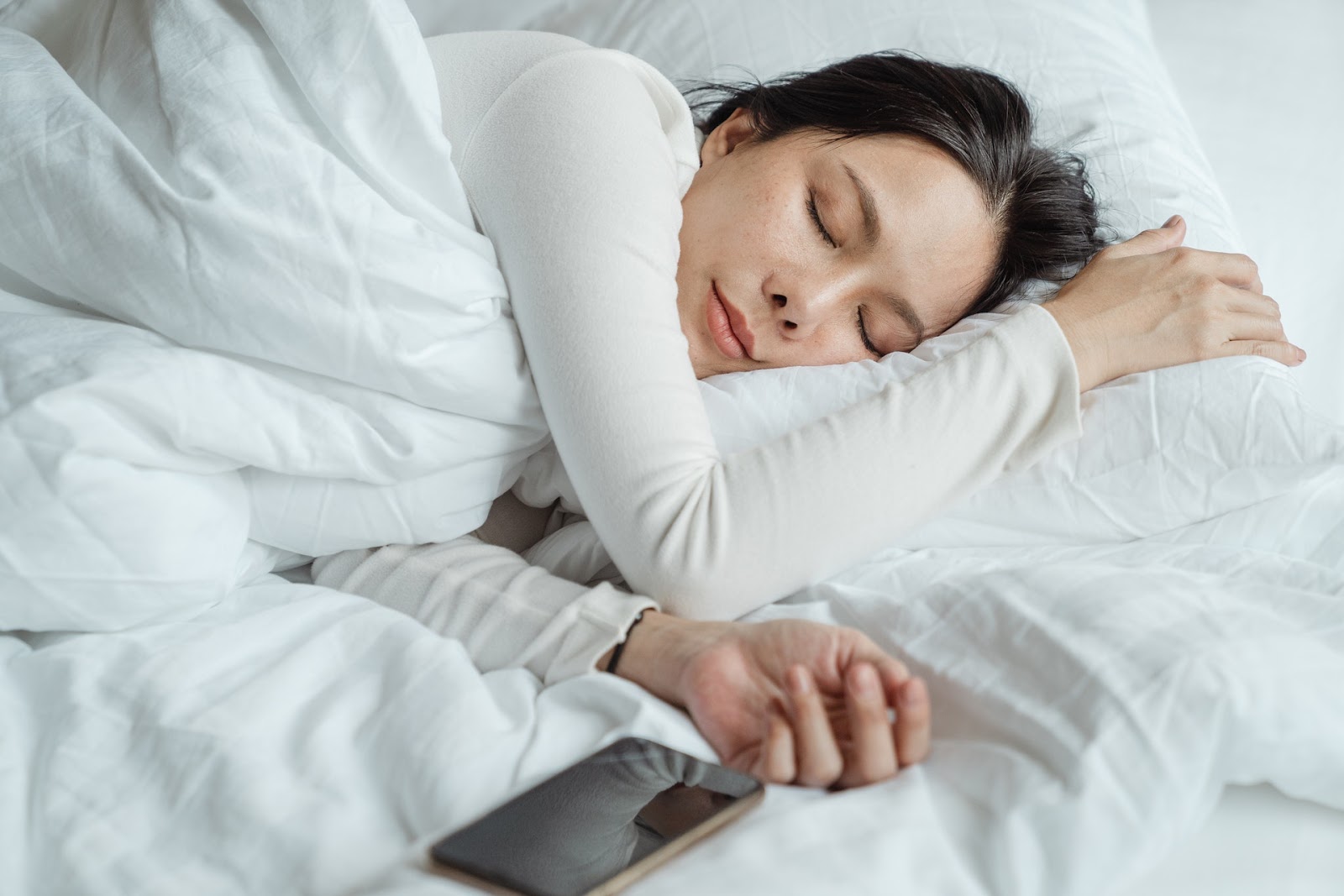Sleep is a fundamental pillar of overall health and well-being, yet many individuals struggle to achieve restful and rejuvenating sleep on a consistent basis. Quality sleep is essential for physical health, mental clarity, emotional stability, and optimal performance throughout the day. Establishing healthy sleep habits, also known as sleep hygiene, plays a crucial role in improving sleep quality and ensuring restorative rest. By understanding the factors that influence sleep and implementing effective strategies, you can enhance your sleep environment, bedtime routine, and overall sleep hygiene to promote better sleep and overall well-being.
Creating a conducive sleep environment is key to improving sleep quality. Your bedroom should be a sanctuary dedicated to sleep and relaxation. Start by ensuring that your mattress and pillows provide adequate support and comfort. The ideal room temperature for sleep typically ranges between 60 to 67 degrees Fahrenheit (15 to 19 degrees Celsius), as cooler temperatures can promote sleep onset and deeper sleep stages. Consider using blackout curtains or an eye mask to block out excess light, as darkness signals the body to produce melatonin, a hormone that regulates sleep-wake cycles.
Maintaining a quiet environment is essential for minimizing disruptions during sleep. If noise is a concern, consider using earplugs or a white noise machine to mask unwanted sounds. Reducing external stimuli, such as electronic devices, bright screens, and clutter, can also create a calming atmosphere that promotes relaxation before bedtime. Your bedroom should be a tranquil retreat free from distractions that could interfere with your ability to fall asleep and stay asleep throughout the night.
Establishing a consistent sleep schedule helps regulate your body’s internal clock, also known as the circadian rhythm. Aim to go to bed and wake up at the same time every day, even on weekends, to reinforce your body’s sleep-wake cycle. This consistency helps synchronize biological processes, optimize sleep quality, and improve overall sleep efficiency. If you struggle with falling asleep, avoid napping during the day or limit it to short power naps lasting no more than 20-30 minutes, as longer naps can disrupt nighttime sleep patterns.
Developing a relaxing bedtime routine signals to your body that it is time to unwind and prepare for sleep. Engage in calming activities such as reading a book, practicing relaxation techniques like deep breathing or meditation, or taking a warm bath or shower. Avoid stimulating activities close to bedtime, such as vigorous exercise, heavy meals, or consuming caffeine and nicotine, as these can interfere with your ability to fall asleep. Instead, opt for light snacks if needed and limit fluid intake to reduce the likelihood of waking up to use the bathroom during the night.
Mindfulness practices, such as mindfulness meditation or progressive muscle relaxation, can promote relaxation and reduce stress and anxiety levels, facilitating the transition to sleep. These techniques help quiet the mind and release tension from the body, making it easier to unwind and drift off to sleep naturally. Incorporating relaxation exercises into your bedtime routine can improve sleep quality and promote a more restful and rejuvenating night’s sleep.
Limiting exposure to screens emitting blue light, such as smartphones, tablets, computers, and televisions, at least an hour before bedtime is crucial for improving sleep quality. Blue light suppresses melatonin production and disrupts circadian rhythms, making it harder to fall asleep and reducing overall sleep quality. Consider using blue light filters on electronic devices or wearing blue light-blocking glasses in the evening to minimize exposure and promote melatonin production naturally.
Creating a bedtime ritual can help signal to your body that it’s time to wind down and prepare for sleep. This ritual can include activities like reading a book, listening to calming music, or practicing relaxation techniques. By consistently following this routine, you can condition your body and mind to associate these activities with sleep, making it easier to relax and drift off naturally.
Ensuring your sleep environment is comfortable and conducive to sleep is essential for optimizing sleep quality. Start by evaluating your mattress and pillows to ensure they provide adequate support and comfort. Consider investing in high-quality bedding and sleep accessories that promote relaxation and enhance your sleep experience. Additionally, maintaining a cool, dark, and quiet sleep environment can help minimize disruptions and promote deeper, more restorative sleep.
Incorporating relaxation techniques into your bedtime routine can help calm your mind and prepare your body for sleep. Activities such as deep breathing exercises, progressive muscle relaxation, or guided imagery can promote relaxation and reduce stress levels. By incorporating these techniques into your nightly routine, you can create a sense of calm and relaxation that prepares your body and mind for sleep.
Avoiding stimulants such as caffeine and nicotine close to bedtime can also promote better sleep quality. Caffeine is a stimulant that can interfere with sleep onset and reduce overall sleep quality. Nicotine, on the other hand, is a stimulant that can disrupt sleep patterns and lead to fragmented sleep. By avoiding these stimulants in the hours leading up to bedtime, you can improve your ability to fall asleep and stay asleep throughout the night.
Creating a sleep-friendly environment is essential for promoting better sleep quality. Start by evaluating your bedroom environment and making adjustments to create a calm and comfortable space. Consider factors such as lighting, noise levels, temperature, and comfort to optimize your sleep environment. Making these adjustments can help improve your sleep quality and overall well-being.
Incorporating relaxation techniques into your bedtime routine can also promote better sleep quality. Activities such as deep breathing exercises, progressive muscle relaxation, or guided imagery can help calm your mind and reduce stress levels. By practicing these techniques regularly, you can create a sense of relaxation and prepare your body and mind for sleep.
Establishing a consistent sleep schedule is important for regulating your body’s internal clock and promoting better sleep quality. Aim to go to bed and wake up at the same time every day, even on weekends, to reinforce your body’s natural sleep-wake cycle. This consistency can help improve your overall sleep quality and make it easier to fall asleep and wake up feeling refreshed.
Limiting exposure to screens emitting blue light, such as smartphones, tablets, and computers, in the hours leading up to bedtime can also promote better sleep quality. Blue light can suppress melatonin production and disrupt your body’s natural sleep-wake cycle, making it harder to fall asleep and stay asleep. Consider using blue light filters on your devices or wearing blue light-blocking glasses to reduce exposure and improve your sleep quality.
Incorporating regular physical activity into your daily routine can also promote better sleep quality. Exercise can help reduce stress and anxiety levels, which can interfere with sleep. Aim for at least 30 minutes of moderate-intensity exercise most days of the week, such as brisk walking, jogging, cycling, or swimming. Avoid vigorous exercise close to bedtime, as it can stimulate your body and make it harder to fall asleep.
Practicing relaxation techniques, such as deep breathing exercises or progressive muscle relaxation, can help calm your mind and prepare your body for sleep. These techniques can reduce stress and anxiety levels, making it easier to fall asleep and stay asleep throughout the night. Incorporate these relaxation techniques into your bedtime routine to create a sense of calm and promote better sleep quality.
Limiting naps during the day can also help improve your sleep quality. While short power naps can be beneficial for boosting alertness and productivity, longer naps or napping late in the day can interfere with your ability to fall asleep and stay asleep at night. If you need to nap during the day, aim for a short nap lasting no more than 20-30 minutes and avoid napping close to bedtime.
Prioritizing healthy sleep habits and implementing effective strategies can significantly improve sleep quality and overall well-being. Creating a conducive sleep environment, establishing a consistent sleep schedule, practicing relaxation techniques, limiting screen time before bed, and avoiding stimulants can all contribute to better sleep hygiene. By making sleep a priority and adopting these habits, you can enhance your ability to fall asleep, stay asleep, and wake up feeling refreshed and rejuvenated each day. Investing in your sleep health is essential for optimal physical, mental, and emotional functioning, supporting overall health and quality of life.





